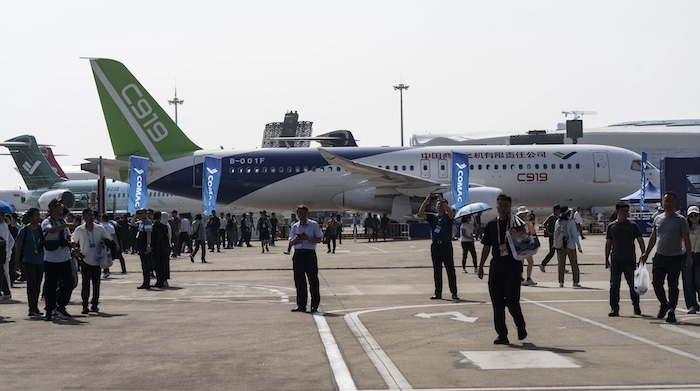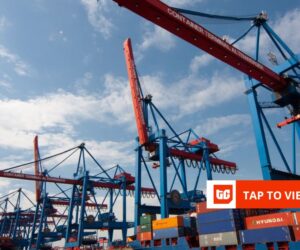Nigeria’s Civil Aviation Authority is considering certifying China’s new C919 jet, a move that could open the door for Nigerian carriers to operate the aircraft on domestic routes and strengthen growing ties between Abuja and Beijing.
The Director-General of the Nigerian Civil Aviation Authority (NCAA), Capt. Chris Ona Najomo, confirmed the development in an interview with Reuters on the sidelines of the U.N. aviation agency’s assembly in Montreal.
“We’re looking at the certification of the airplane. First of all, that is where we have to start,” Najomo said, noting that the process could take months and would proceed despite the absence of validation from Western regulators.
The C919, built by China’s state-owned planemaker COMAC, is designed to compete with Airbus and Boeing in the narrow-body aircraft segment. But the plane faces challenges: it lacks certification from Western regulators, and earlier this year, US export restrictions temporarily disrupted the supply of CFM engines that power the jet.
Nigeria’s aviation minister recently signaled that the country was open to COMAC using Nigeria as a base to expand into the wider African market. With a population of over 230 million people and a growing aviation sector, the country is seen as a strategic hub.
A spokesperson for Nigeria’s first international air show, set for December, confirmed that COMAC intends to display one of its planes at the event, though the model has not been specified.
Najomo disclosed that COMAC had proposed maintenance and training packages for Nigerian operators, alongside leasing options.
“We just told them that if they can make sure they facilitate a good dry lease arrangement, it’s better,” he explained.
Dry lease arrangements, which provide aircraft without crew, could help Nigeria’s 13 domestic carriers expand their fleets at lower cost.
Abdullahi Ahmed, CEO of NG Eagle, one of Nigeria’s carriers, confirmed that his airline was exploring expansion beyond its current fleet of three jets and would consider COMAC aircraft provided certification and technical support are guaranteed.
Nigeria’s improved Aviation Working Group rating, reflecting stronger compliance with the Cape Town Convention on aviation leasing, is also boosting investor and lessor confidence.
This has already given Nigerian airlines access to newer aircraft through leasing deals.
While high costs remain a challenge for travelers, IATA data shows that average real airfares in Nigeria fell by 43.6% between 2011 and 2023, signaling gradual progress in affordability.
Currently, the C919 is flown only by Chinese airlines, while COMAC’s smaller regional jet, the C909, operates with three carriers in Southeast Asia.
Erizia Rubyjeana
Follow us on:








